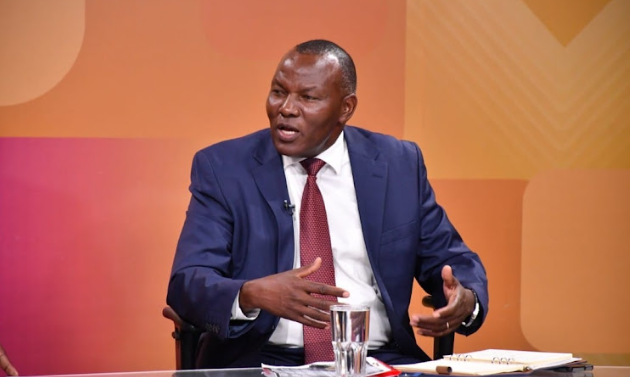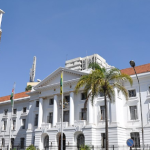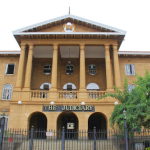Dr. Gaitho, who chairs the KEPSA Education Sector Board, spoke during a panel discussion on the government’s new university funding model at Machakos University, hosted by a local TV station. The model has faced criticism from students and parents for being discriminatory and plagued with system delays.
Dr. Gaitho suggested that multinational corporations and other local businesses with substantial profits should be encouraged to contribute to higher education funding as part of their Corporate Social Responsibility (CSR).
He said, “Recently, the Ethics and Anti-Corruption Commission (EACC) handed over corruptly acquired assets worth more than Sh5 billion to President William Ruto. These assets could be allocated to HELB to fund students in institutions of higher learning.”
On September 11, at a ceremony held at State House, EACC CEO Twalib Mbarak transferred titles to various recovered properties to the Cabinet Secretary of the National Treasury through the President. These assets included 35 title deeds covering 18.71 acres, valued at Sh5 billion, and cash assets totaling Sh511.4 million.
Dr. Gaitho noted that the government allocation per student in private universities dropped from Sh70,000 when the program began in 2016 to about Sh40,000 by the program’s end. This reduction compelled private institutions to seek additional bursaries, scholarships, and other funding sources to bridge the gap. Today, private universities no longer receive direct government funding but continue to admit many students who rely on loans from HELB.
During the interview, HELB’s Head of Lending, King’ori Ndegw, acknowledged the delays in disbursing funds to universities, colleges, and student accounts due to competing demands at the Treasury. He noted, “This might force reporting students to conduct fundraisers (harambees) in the meantime to meet personal needs and requirements by the institutions.”
Dagorreti North MP Beatrice Elachi mentioned that a Bill is in progress in Parliament to centralize all bursaries from national and county governments, CDF, parastatals, and the private sector. She urged HELB to facilitate funding for students without national identity cards (IDs), adding, “HELB should also make it easier for students to apply for loans.”
King’ori of HELB responded that 55,000 new students without IDs have been allowed to use their KCSE index numbers and birth certificates to access funding.
Meru University Vice Chancellor, Prof. Romano Odhaimbo, cautioned that while the benefits of higher education are often rewarding, the journey can be challenging and disheartening. He revealed that a committee, including student leaders, has been established to address the new funding model.
Prof. Odhaimbo shared his own experience, noting that he received support from well-wishers through primary school and Form Six, government funding at university, and sponsorship from the German Academic Exchange Programme for his Masters and PhD.
Out of 153,000 students who scored C+ and above in the 2023 KCSE results, 146,000 applied for assistance under the new funding model. Prof. Odhaimbo emphasized, “Public universities are owned by the State; vice-chancellors are only CEOs. University councils manage overall administration, budgets, and expenditure approvals. Internal and government external auditors ensure funds are not misused.”
Machakos University’s Deputy Vice-Chancellor for Academic Affairs, Prof. James Mwola, reported that they were expecting around 3,000 First Years, with about 80 percent having already reported by last week. He noted that most new entrants have been placed in Bands 3 and 4, prompting them to appeal to HELB. “These are genuine cases,” he said, urging students to ensure they provide accurate information in their appeals.
Emmanuel Manyasia, Executive Director at Usawa Agenda accused HELB, the government and Vice Chancellors of being economical with the truth.
“A VC told us recently that although students are being admitted before clearing their fees in full, but they cannot sit for examinations as per the rules of university councils,” he said.
The forum came on the backdrop of the recent roll-out of the new, controversial Variable Scholarship and Loan Funding model for university students, which has brought changes in how university students pay their fees.
Previously, the government was funding university education through a Differentiated Unit Cost model- where its contribution to public universities was expected to be 80 per cent.




